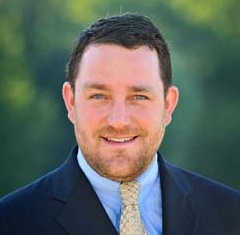 Dear Colleague,
Dear Colleague,
Are you encouraged and inspired by the many funders that have taken bold steps to help promote and defend equity and justice in our new political reality?
We are, too. But many more grantmakers are taking a “wait and see approach” as communities battle for health equity, environmental justice, racial justice and other important issues that form the fabric of our democracy.
Time and again in our nation’s history, philanthropy has demonstrated its power and potential to help solve urgent problems and ensure that this country lives up to its democratic ideals. Now could be another of those times.
A number of the articles we feature in this edition of Responsive Philanthropy examine some of the opportunities for funders to make a lasting difference in this current moment.
The proliferation of misinformation and widespread efforts to compromise the “truth” continue to fan the flames of distrust on our democratic institutions, including the press. Josh Stearns of Democracy Fund asks, “Can philanthropy help rebuild trust in news and the public square?” His answer is “Yes” and offers six entry points for foundations to engage with ongoing and emerging trust-building efforts.
David Biemesderfer of the Forum of Regional Associations of Grantmakers shares his thoughts on the role of regional associations, affinity groups and other networks in “In today’s complex and uncertain times, philanthropy associations and networks are more vital than ever.” He highlighted three specific areas of leadership for these groups.
We’ve been hearing from so many groups in the frontlines of resistance efforts that one of the ways foundations can help is by providing multi-year, general support. In “Long-term general support: The elusive Bigfoot in philanthropy,” we asked NCRP members: “Why do you think funders shy away from awarding flexible, multi-year grants?” And how would they respond to these concerns?
In “Rebuilding the middle: How United Ways and foundations can get in the fight to bring communities together,” Pete Manzo of United Ways of California says he believes that even at this time of seeming divisiveness, it is still possible – in fact, it is imperative – that we find common ground. He also underscores the need to advocate for policy changes “that can increase the odds of success for the people and communities we serve.”
NCRP board member Bill Bynum notes the growing interest in the South among grantmakers. Bynum shares two critical strategies for successful philanthropy in “Funding change in the Deep South,” based on his own experience leading HOPE, a community development credit union serving families and businesses in the Midsouth.
For our Member Spotlight, we feature the Economic Policy Institute and its Economic Analysis and Research network. EPI’s mission is to “inform and empower individuals to seek solutions that ensure broadly shared prosperity and opportunity.”
We are committed to highlighting stories and resources that help the sector become truly effective forces for good. Let us know what you think: Send comments and story ideas to community@ncrp.org.
Sincerely,
Aaron Dorfman
President and CEO
NCRP